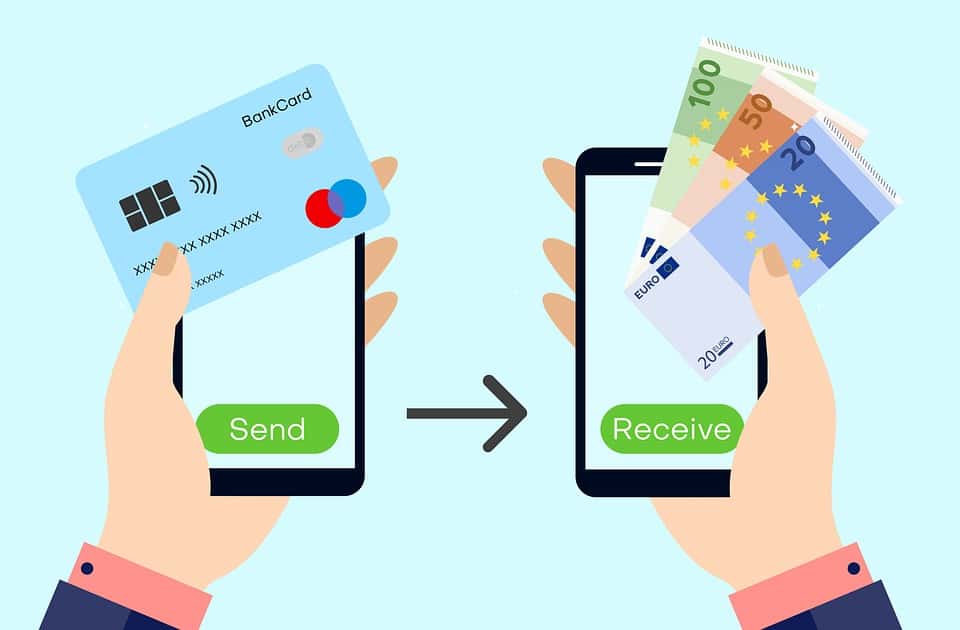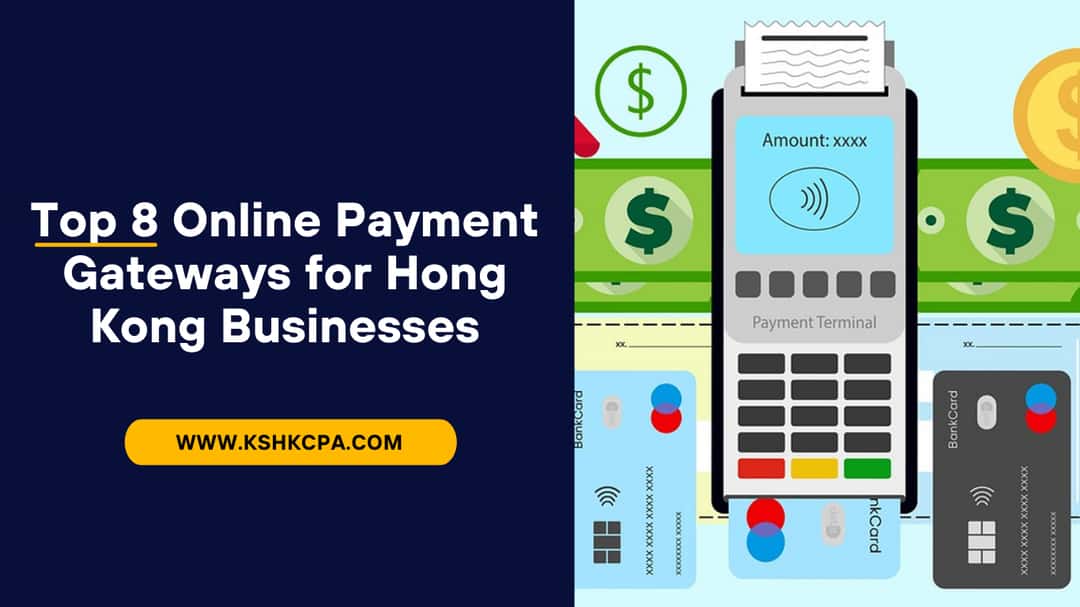With technology and ecommerce on the rise, payment gateways are now more important than ever before.
Not only can a lack of payment methods affect sales for online Hong Kong businesses, but difficult and time-consuming payment processing can also have a huge negative impact.
Therefore, if you operate an e-commerce business in Hong Kong, it’s crucial to choose the best local or international payment gateway available.
Once your Hong Kong business is set up with a payment gateway and is able to start accepting payments online, your business will increase exponentially.
Table of Contents
What is a payment gateway?
A payment gateway is used by online stores to accept payments on purchases made by customers. It’s a technology that provides online payment processing portals.
They serve as checkout portals to enter a credit card payment, debit card, or checking account information so it can be authenticated and authorized.
The payment gateway transfers payment data which is either accepted or declined. The payment gateway validates whether the funds are available for the merchant to receive payment.
Personal and payment information passes securely from the customer to the acquiring bank through the merchant’s account. The convenience of payment gateways drive revenue.

How Do Payment Gateways Work?
Payment gateways are components of the electronic payment processing system. It sends customer information to the acquiring bank or financial center where the transaction is processed.
Chip technology allows for the use of personal identification numbers which have eliminated the need for signatures.
The payment gateways require application programming interfaces to allow the Hong Kong business to connect and communicate with the payment processing network.

What are Payment Service Providers?
Payment service providers enable businesses to accept payments of various types. These payments include e-wallets, cash cards, debit cards, and credit cards.
These third-party payment processing companies don’t just represent one merchant but act as a financial umbrella for numerous merchants which gives customers some flexible payment methods.
Payment providers handle every step of the online payment transaction starting with the initiation of the transaction to the business receiving the funds.
These service providers are able to connect with various payment networks, card networks, and acquiring banks. A payment service provider is typically the most affordable option for Hong Kong start-ups and small businesses.

What is a Merchant Account?
A merchant account is a bank account that enables businesses to accept cashless online transactions.
Merchant account providers assign an individual account and merchant identification number to each business resulting in one merchant per account.
Due to the individual accounts, it takes quite a bit of time to be approved by a merchant account provider.
The compliance process and verification can take weeks to move through the approval process.
After the approval process, the merchant’s bank account is stable with minimal risk of termination, freezes, and holds.

Payment Gateway vs. Merchant Accounts
Businesses cannot accept online payments without both a payment gateway and a merchant account. Even though they are both business tools, they each serve a different purpose.
A payment gateway is an interface that allows for the collection of card transaction data from consumers. Merchant accounts allow for businesses to receive funds from the card transactions.
Personal information and payment details are passed securely starting from the customer and then to the acquiring bank through a merchant account.

What are the Advantages of a Payment Gateway for Businesses in Hong Kong?
More and more merchants are teaming up with payment gateway services. There is a reason for this. There are many benefits to this partnership.
- Convenience. With a payment gateway for businesses in Hong Kong, customers can shop from anywhere in the world, any time of the day or night. They can place an order, make online payments, and have it shipped to their front door without ever having to leave the house.
- Secure transactions. An online payment gateway uses industry standard encryption which protects sensitive data. This protects both the consumer and the Hong Kong merchant from fraud.
- Fast transaction process. Customers can make purchases without having to wait in a long line which saves them time. The streamlined process is much faster than having to do it all manually.
- Expands your customer base. Payment gateways for Hong Kong merchants expand your customer base significantly by having customers from all over the world instead of just in the physical location of Hong Kong.
- Streamlines the purchasing process. When shopping cart software is added to your own software, all the customer has to do is add the product to a shopping cart with the click of a button and the shopping cart calculates the cost of the item, sales tax, and shipping charges without any manual interference from an employee.

How to Choose the Best Payment Gateway for Your Hong Kong Business?
There are several things to consider when choosing the best payment gateway for your Hong Kong Business. You want to make sure you are getting the best value for the services received.
- Fees. Just be sure you’re not paying any more than you have to on monthly fees, international exchange fees, and cost per transaction.
- Multiple currencies. The most important thing to keep in mind when looking for a payment gateway for your Hong Kong business is that your customers want the ordering and payment process to be as easy and quick as possible.
So, when you’re dealing with a global eCommerce business, you want your prices and methods of payment to be offered in various currencies with flexible settlement periods. This makes the process easier for consumers no matter where they live, and it allows you to transact not only with consumers but also with suppliers in multi currency payments. - Integration Process. Make sure the payment gateway integrates with your content management system or your Hong Kong online store. The plug-in should integrate smoothly and easily, and the API should connect fluidly with your site.
- Ease of Use. Not only do customers want an easy purchasing process but you should want to make sure the implementation is simple on your end as well. The online payment gateway should be easy to set up, intuitive, and consist of a user-friendly dashboard.
- Languages. Another nice feature is if the platform comes in a variety of payment gateway languages which makes it ideal for global customers.

What are the Best Payment Gateways for Businesses in Hong Kong?
1. Stripe
Stripe is a popular online payment solution for start-ups and small Hong Kong businesses. It’s easy to navigate and customize based on the branding of your business.
It offers recurring payment processing, fraud protection, invoicing, and manages business spending. Stripe’s transaction fee is reasonable at 3.4% on each charge plus a HK$2.35 fee.

2. PayPal
PayPal is a leading payment gateway that has become a popular platform and has the reputation of being a very secure and trustworthy site.
PayPal payments are accepted for e-commerce businesses all over the world and their global payment processor platform can be easily integrated directly on the business’s website.
PayPal accepts payments from a wide range of debit & credit cards and offers 24/7 fraud protection, two factor authentication, and seller protection. Their checkout options include PayPal Standard, PayPal Express, and PayPal Website Payments Pro.
It’s available in over 200 countries and supports 25 currencies. PayPal’s transaction fee starts at 2.9% of the transaction value plus HK$2.35 per payment. Foreign payments incur a transaction fee of 4.4% plus currency conversion fees.
3. Venmo
Owned by PayPal, Venmo is a mobile payment application that has become quite popular over the last few years. The Venmo payment platform can be added directly onto the business website.
Customers can check out and process payments either on the business website or through the mobile application.
Just like PayPal, Venmo has developed quite the reputation for being a trusted payment processing platform.
4. eWay
Originally an Australian company, eWay has expanded its operations to Hong Kong. With eWay, you are assigned a dedicated account manager to help with the set-up and it can be quickly and easily integrated into the business site.
They also accept a wide range of debit and credit cards and provide 24/7 technical support. Their transaction fee starts at 3.4% per card charge in addition to a HK$2.35 fee per credit card payment.
There is also a 1% cross-border charge for foreign currency per transaction. There is also an all-in-one plan that comes with no monthly fee.
5. AsiaPay
AsiaPay is an online payment gateway based in Hong Kong. It’s one of the leading online payment methods in Asia. AsiaPay is a great solution for businesses operating within Hong Kong and those who sell to locals.
They use PayDollar and accept up to 126 currencies. They also accept debit & credit card payments from local banks such as AliPay and China Union Pay.
AsiaPay’s support for Chinese payment solutions make it a great payment platform for businesses that sell within China.
6. Adyen
Adyen is a world-wide payment gateway that enables merchants from different countries to use their own domestic payment options. This is a huge benefit to larger companies that have a brand and customers from all over the world.
They accept 250 payment options and 187 currencies. They offer a secure payment gateway, seller protection, and exceptional customer support.
7. Braintree
Braintree is a merchant account provider owned by PayPal. Merchants in Hong Kong can sign up for Hong Kong’s processing services.
Braintree accepts payments in over 130 currencies for international customers, offers basic fraud tools, an encrypted vault for protecting cardholder data, recurring billing, and a wide variety of third-party integrations.
There is no account set-up fee or monthly fee. They charge 2.9% plus .30 per transaction.
8. 2Checkout AKA Verifone
2Checkout is a payment service provider for international online processing. They accept payments from 234 countries, integrate with over 120 shopping carts, feature recurring billing, offer fraud protection tools, and the checkout page can be integrated with your business website.
They offer 3 basic pricing tiers that start out at 3.5% plus .35 per transaction. They also incur chargeback fees and cross-border fees.

FAQ
What kind of account is a merchant account?
A merchant account is a bank account that allows your business to accept a variety of payments online. The payment gateway collects the payments in your merchant account and makes one deposit into your bank account.
What has been one of the major challenges of setting up and running an online Hong Kong based business?
Accepting payments online has been one of their biggest challenges.
Are payment gateways customizable?
Most payment gateways are customizable, so they fit your business model, business needs, and functionality of your website.
What is the advantage to a global platform that accepts multi-currency payments?
The advantage to accepting payments from all over the world is that it offers more flexibility for potential customers and will drive revenue. It’s a win-win situation for both merchant and customer.
Can money be transferred directly from the issuing bank into your business bank account?
No, the money can’t be transferred directly from the issuing bank account into your business account because merchant accounts are necessary for the chain of approval.
Why are online payment gateways important and are they secure?
Payment gateways are services provided to merchants and make it possible for them to sell online so that they can reach a global audience. This particular payment platform encrypts card details before sending the data to the acquiring bank so it is a very secure way to make a payment.

